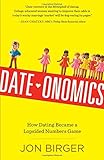I see a dichotomy here. On one hand, we would like to have more women in the "educated" and therefore, high-income workforce. This, in turn, causes imbalance in the dating market and may force the women in the high-income bracket to make a concession(by lowering their standards, etc). On the other, we can go back to the model where men dominate the high-income workforce and many women can "marry up" when they're younger. I would pick the former than the latter any day. Equality of opportunity trumps the equality of results in my world.
Also, beyond a certain point, money just doesn't make the other person more attractive. I would rather date a caring jobless younger woman than an abusive doctor with several degrees. I make enough to pursue my dreams and leisures. Articles like this actually seem very insensitive for the men of my situation(previously poor, now making comfortably but didn't date much in 20s), as it purports that I, as a man in dating market, is worth as much as the amount of money I make. I hope that's not case for most people.
Think about it. This is a "crisis" because there aren't high-earning men that these high-earning women would allow themselves to date? It doesn't necessarily trigger schadenfreude to me, if not a profound sadness due to a nature of the "problem". As a single man of early thirties, this sort of article horrifies and saddens me. You need to find your own happiness and maybe it shouldn't depend on other people.
Jon Birger's Date-onomics(2015) discusses this phenomenon[1] pretty astutely, if you're interested in reading further data.
[1] https://www.amazon.com/Date-onomics-Dating-Became-Lopsided-N...


Outside of SF though, the situation is likely reversed - many more women than men are graduating college, and people tend to want to pair off with people of similar educational achievement.